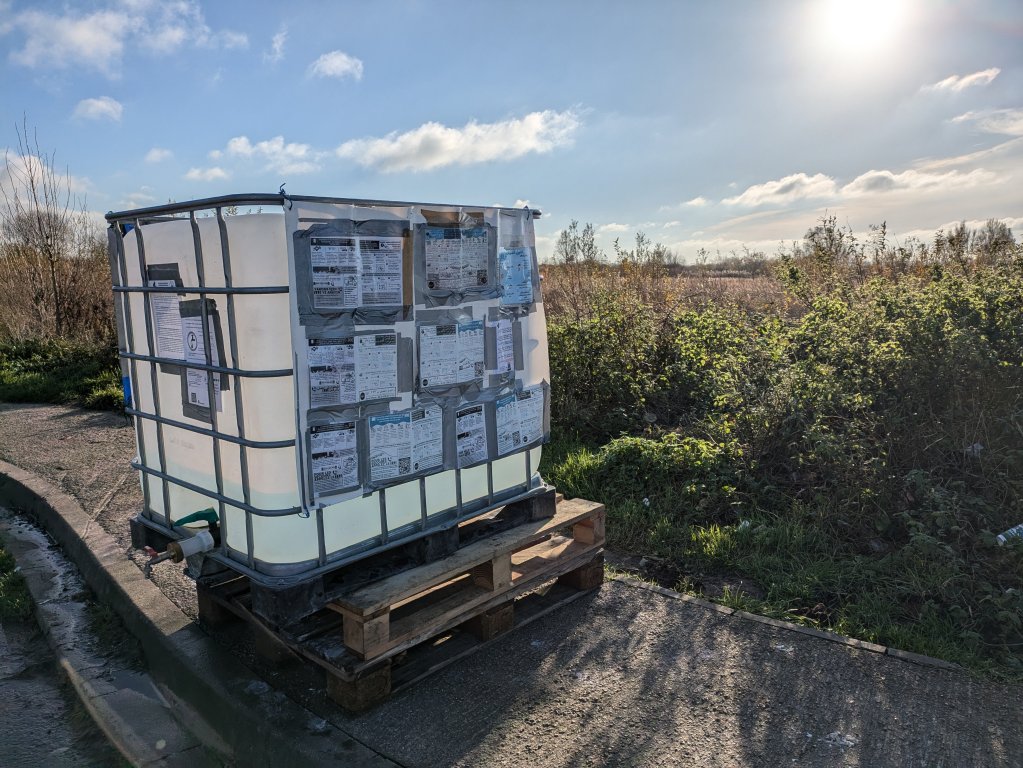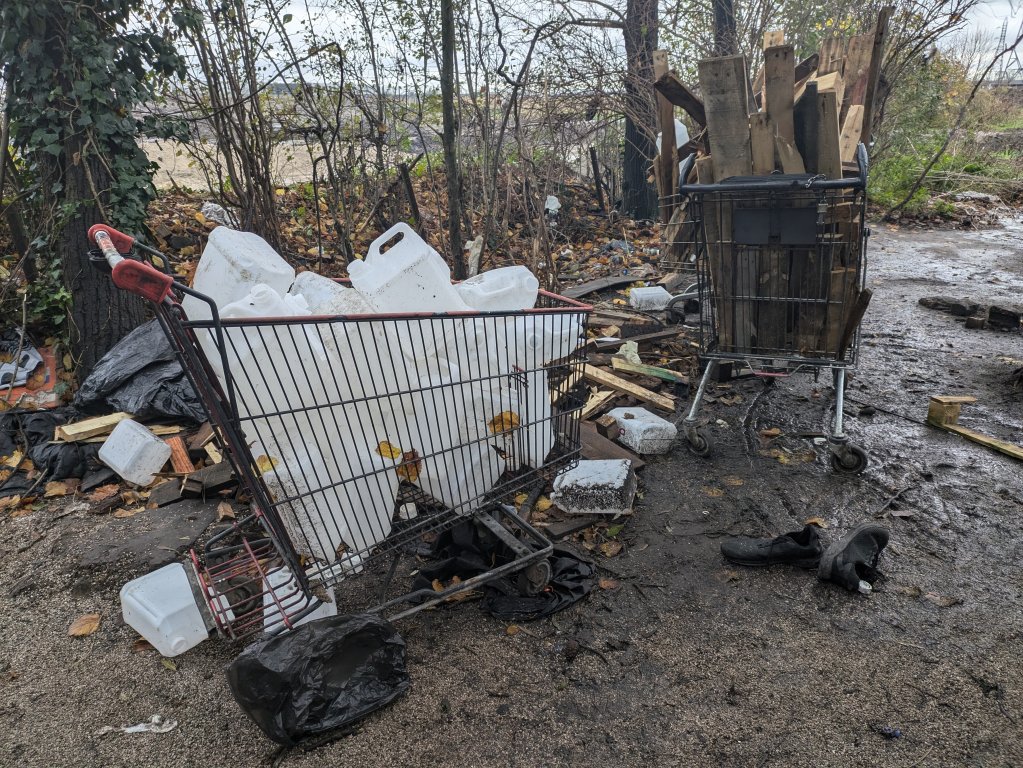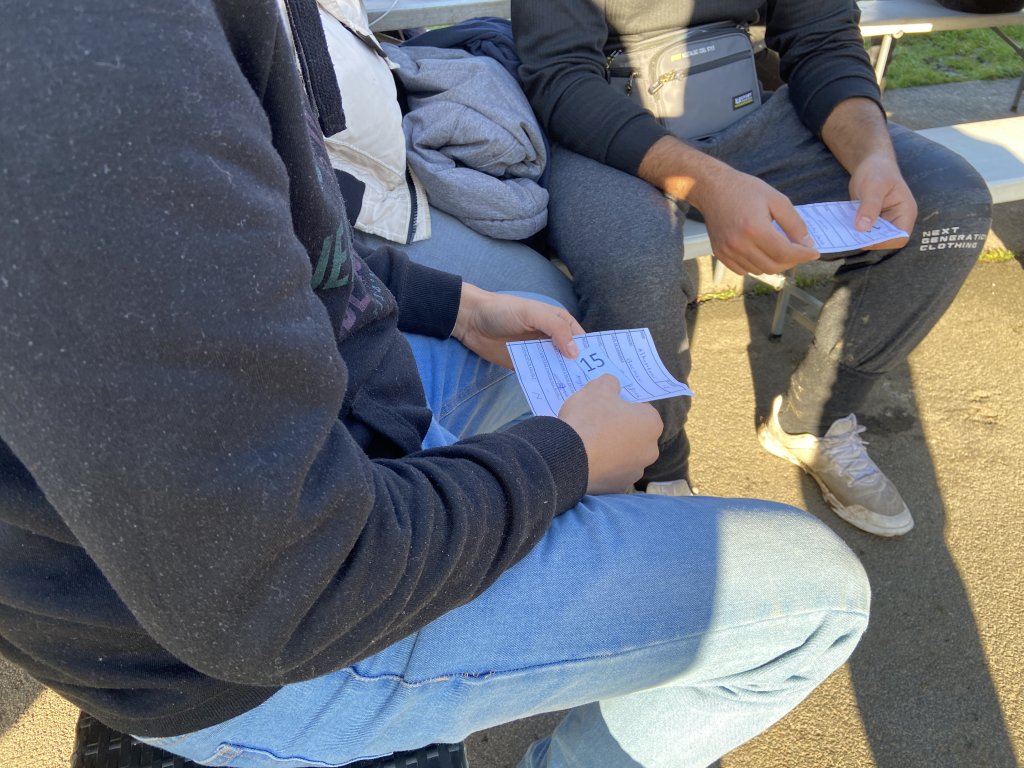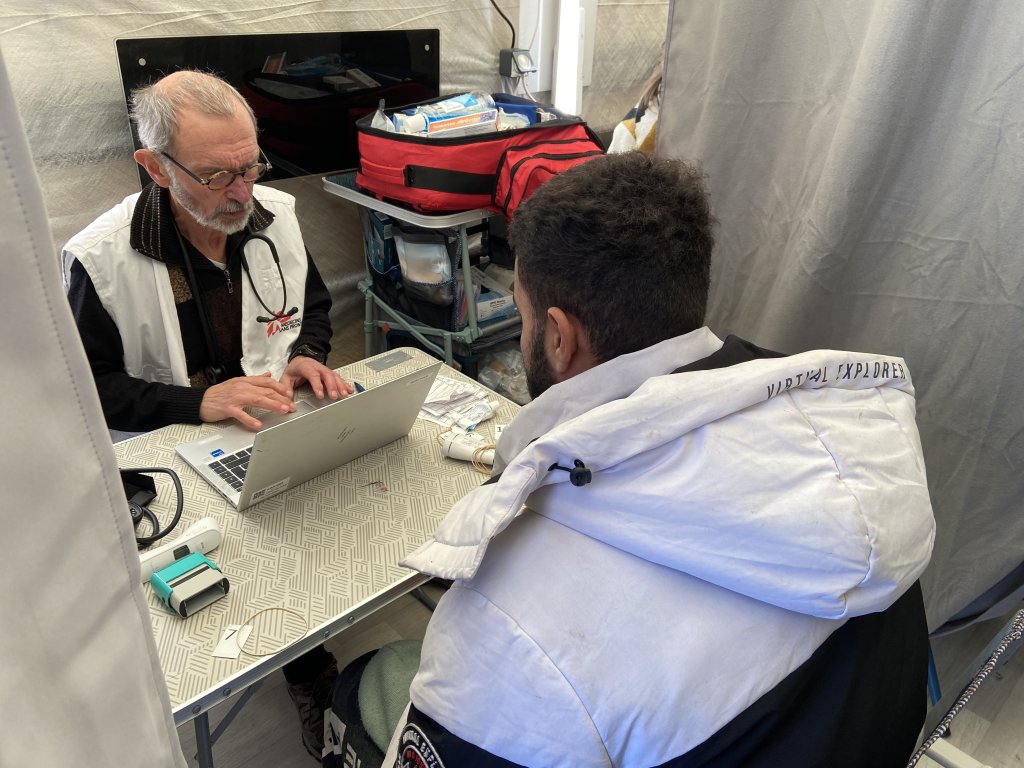After several years of absence, Médecins Sans Frontières returned to Calais last year, responding to the deteriorating health and living conditions of migrants along France's northern coast.
Doctors without Borders, or Médecins Sans Frontières (MSF), reopened a mobile clinic in Calais in northern France in April, 2023 to provide essential care to those living in difficult conditions, filling a significant gap in services for both physical and mental health.
The mobile clinic operates twice weekly, strategically located near areas frequented by migrants: Thursday mornings near the Calais hospital and Friday afternoons at the Secours Catholique day center, near the center of town. Patients are seen on a first-come, first-served basis, with interpreters on hand to assist consultations in multiple languages, including Arabic, English, and French.
A few steps from the mobile clinic, a group of men sit at foldable tables charging their phones, some sipping tea from small cups while others engage in a game of Connect 4, carefully placing red and yellow coins in rows to win points.
In the distance, past a water canister and in front of the portable toilets, five men kick a football about in the sun. In front of the MSF clinic two men sit, their hands tucked into their jackets, waiting for their turn.
Read AlsoFrance: Migrants on northern coast 'live in great precariousness and lack everything'
Comprehensive care, despite challenges
The clinic primarily treats conditions linked to the harsh realities of life on the street and in transit. Retired general practitioner Michel Rebstock, who volunteers with MSF, explains:
"We see a lot of respiratory infections, recurring colds, and skin diseases. Migrants often can’t recover fully due to their living conditions, leading to cycles of illness."
Elise Houard, a nurse who joined MSF two months ago, further elaborates on the wide range of health issues the clinic addresses:
"Hydration is another major issue, as many patients suffer from insufficient water intake due to limited access to water and a lack of containers. Psychological issues are also prevalent, often worsened by the harsh conditions people are living in."

The lack of practical means for hydration highlights the challenges of daily life in Calais. Large water tanks are refilled by local associations near migrant camps, but migrants often lack cups or bottles to drink from. As a result, many drink directly from the containers without being able to transport it to their camps, leading to dehydration and related health issues.
Walking through the camps you sometimes see shopping trolleys full of jerrycans, but these are very heavy and many camps have long unpaved muddy paths that lead to the tents, making it very difficult to transport large amounts of water.

Regardless, MSF staff have taken proactive steps to remind patients of the importance of hydration, posting signs around the clinic to encourage water consumption.
In addition, Rebstock notes that many patients present with burn injuries caused by exposure to saltwater mixed with fuel during attempted Channel crossings.
"This summer, we saw many second-degree burns, particularly on the legs, caused by the mixture of seawater and fuel."
Houard explains that because burns are quite specific injuries, MSF will normally refer patients to the PASS [the hospital’s healthcare access service].
"We provide first aid if a patient presents with burns, then we direct them to the hospital. If the burns are at a later stage, where healing has progressed, we can resume care to manage simple dressings."
Read AlsoDeadly Channel crossings: 'Migrant smugglers push the limits,' say authorities
A new haven for unaccompanied minors
In addition to the mobile clinic, MSF has opened a day center for unaccompanied minors, offering a safe space for rest and connection. Here, young people can share their experiences, receive support, and combat the isolation often associated with being on the move.
MSF has also prioritized healthcare for unaccompanied minors. Feyrouz Lajili, MSF’s project coordinator in Calais, explains that these young individuals often face severe injuries during attempts to cross into the UK. Common injuries include fractures and wounds from barbed wire while attempting to enter parking lots or trucks.
Many young Sudanese migrants, many of them minors, can't afford to pay smugglers to cross the Channel by small boat, instead they attempt the the journey by car or truck, clinging onto the roof or hiding in the cargo. This can also result in severe injuries from moving vehicles.
There have also been cases of violence from private security guards, such as a boy who was bitten by a guard dog released on him during an attempted crossing. MSF staff regularly treat these types of injuries, providing immediate care and referring patients for further treatment when necessary.
Several of the young men charging their phones are between 17 and 18, many are from Sudan and some are from Eritrea and Yemen. Most are here to charge their phones and to access the basic services provided, they explain.

One young man called Bashar, 18, who fled Yemen as a child before receiving a deportation order, is waiting to be seen by medical staff and tells InfoMigrants "there's nothing wrong with me, but I really don't feel well." He arrived in Calais a few weeks ago, with nothing to keep him warm him at night and has caught a cold from the conditions he has been living in. Many migrants don't only struggle with physical but also with mental health issues due to their situation.
Read AlsoChildren survive cold and dangerous boat crossing to reach UK
Addressing the mental health crisis
Mental health is another critical focus for MSF. Many migrants in Calais carry the emotional scars of traumatic journeys, including shipwrecks, police violence, and isolation. In response, MSF employs a French-, English-, and Arabic-speaking psychologist and collaborates with interpreters to offer psychological consultations.
Lajili explains that the availability of psychological care depends on the needs. "Our psychologist often engages in what we call 'outreach' during general mental health awareness sessions or when visiting individuals referred by other associations. This allows her to meet people, build trust, and then propose a consultation. Appointments can take place immediately if she has time, or a few days later, either at our premises, where we first met, or in another associative space."
The lack of immediate psychological care became evident after the Channel shipwreck on September 3, 2024, which claimed 12 lives. MSF requested the activation of an emergency medical-psychological unit (CUMP) to support survivors, but the request was denied. This gap in care underscores the urgency of MSF's presence in Calais, they say.

Despite the challenges, the MSF team remains committed to providing compassionate care amid these shortfalls.
Rebstock also notes that many patients come to see him for health issues, but also "sometimes they just come here to talk to someone."
Houard adds that many patients come to find a space "where they feel heard and valued. It’s a small step, but it makes a difference."
Through their work, MSF offers more than medical aid, they also provide dignity and a safe space to some of the most marginalized individuals in Calais, helping them navigate the harsh realities of their journeys and dreams of a better future.
Read AlsoHomeless migrants in France: 'They walk at night to avoid freezing to death'
Additional reporting by Julia Dumont.
